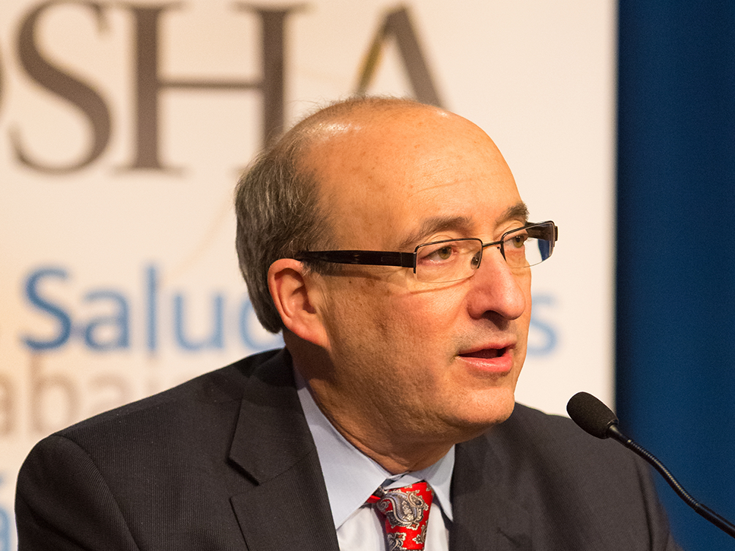Actors’ Equity Association & Dr. David Michaels Reveal Guiding Principles for Reopening Theaters

Actors' Equity Association President Kate Shindle and Executive Director Mary McColl hosted a press call on May 26 to discuss the measures being taken to reopen theaters in the wake of the COVID-19 pandemic. As previously reported, the AEA has retained safety consultant Dr. David Michaels, who served as the administrator of the Occupational Safety and Health Administration (OSHA) under former President Barack Obama, to advise the union to develop the steps necessary for reopening Broadway and theaters across the country. Dr. Michaels joined Shindle and McColl on the call and presented four core principles that need to be met before theatrical productions can resume safely.
"Actors' Equity Association is eager to reopen theatrical productions but should only permit this to happen when the safety of members and everyone else involved in producing theater for the public can be protected," Dr. Michaels said. "Once a specific production is being contemplated, extensive additional work will need to be done to further minimize risk of exposure. This is a process. It's a process where I am gathering information from many sources. Everybody's in this together. We have to make sure everybody is safe."
The first principle is that the epidemic must be demonstrated to be under control. According to Dr. Michaels, this means that there is extensive testing widely available and very few if any new cases are being identified in the area where the theater is. Assessing specific numerical goals is one of the next steps being prioritized in AEA's collaboration with Dr. Michaels.
The second principle is that individuals that may be infected must be identified and isolated per the coronavirus health and safety guidelines. This too will rely on the accuracy and availability of COVID-19 testing, not only for audience members but for those making a production happen, from performers to the production crew to the front-of-house staff.
The third principle is that theatrical venues must be modified to minimize exposure. Even when few new cases are being identified and testing becomes widely available, a spike in transmission and new infections can occur at any point in time. Accommodations will need to be made to enable participants to maintain social distancing and sanitary practices; this may include expanding or reconfiguring dressing rooms to ensure adequate physical distance, as well as alternative approaches to audience seating, entry and exits. Plans should be made to designate an area for isolation if and when a member or other employee reports symptoms.
Finally, efforts to control coronavirus exposure must be collaborative. Though it is still too early to develop production-specific infection control plans, when that does happen, all participants must agree to follow the new rules and work to continually evaluate and improve them. If all the participants aren’t committed to the plan’s success, it is unlikely to succeed.
Though these general principles will take time to transform into specific plans and guidelines, AEA remains hopeful for the industry. "Every single producer that I'm talking to is talking about the art form and the community that is built around the art form," McColl shared. "That really does give me hope that we will come back. It might look different for a little while, but I think it is going to come back to what it has been and what it was meant to be."
 Dr. David Michaels
Dr. David Michaels(Photo courtesy of Actors' Equity Association)